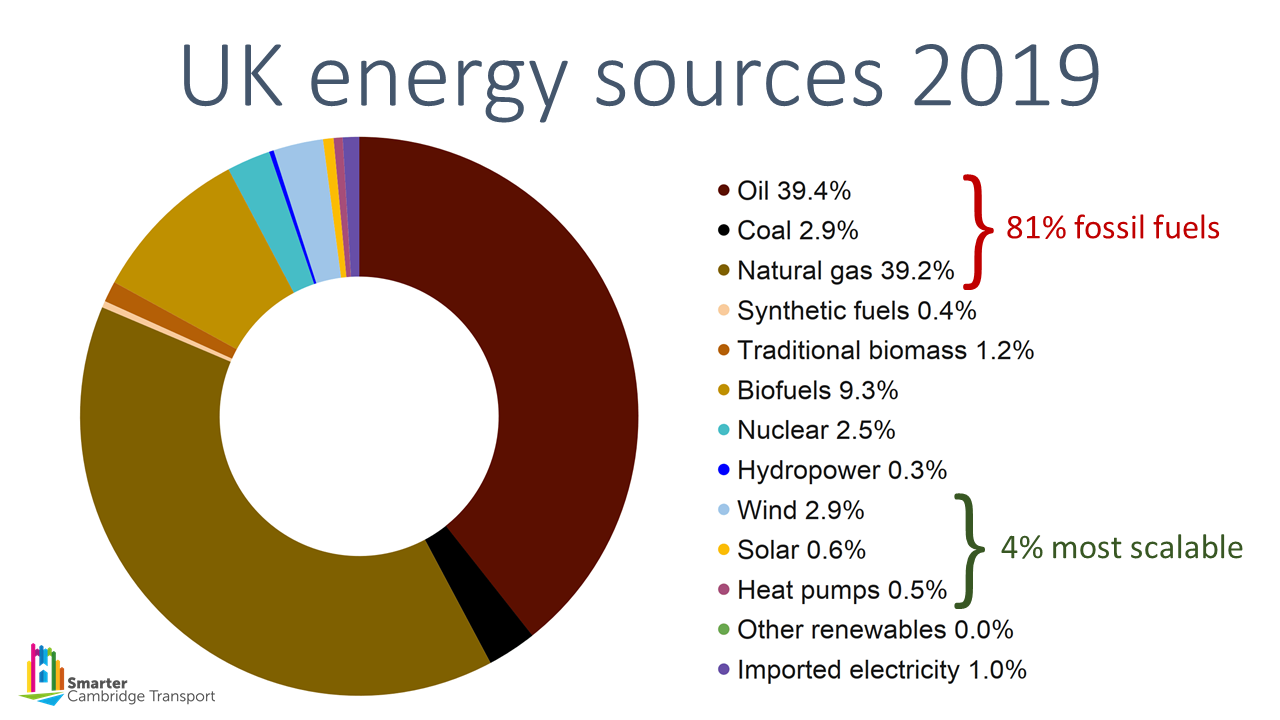Many children alive today will see in a new century. That is as far into the future as the middle of the Second World War is in the past now. Think how much has changed since 1941: the welfare state, mobile phones, the internet, satnav, social attitudes towards diversity, £10 flights to Rome, and so much else. How different will the world look in 2100? Possibly unrecognisably so, because climate change and how we respond to it will have radically reshaped where and how we live.
In the next ten years, the biggest challenge we must meet is to substitute burning fossil fuels for energy (currently 81% of all energy consumed in the UK – see pie chart below) with zero-carbon alternatives. Wind and solar are the most immediately scalable (currently 3.5% of UK consumption) but will also need to be backed by daily and seasonal energy storage. Other energy sources may emerge from fourth-generation nuclear, tidal, wave and geothermal, but not at scale until the end of the decade.
Until we’ve achieved that energy transition, we have to reduce our energy consumption, drastically. The question is how to achieve that equitably and without crashing the economy. The biggest reduction many of us can make is to take fewer long-haul flights and travel long-distance by rail whenever possible.
More challenging is to use our cars much less. Debate is still stuck in an endless loop: we won’t accept restrictions or additional costs on driving until alternatives are faster and cheaper; and we resist changes to roads that would improve the alternatives because they will slow car journeys. Rather than admit to wanting to preserve our own privileges, we claim to be protecting the interests of other groups, such as “the disabled”, “the elderly”, “the poor”, or “children”.
This last gambit is perhaps the most obstructive. Is our own experience or imagination really sufficient to speak for others? If we recognise that some people lack a voice in the debate about the future, shouldn’t we help them participate directly? Will you join me in making that a New Year’s resolution?

This article was first published in the Cambridge Independent on 30 December 2020.



Add comment